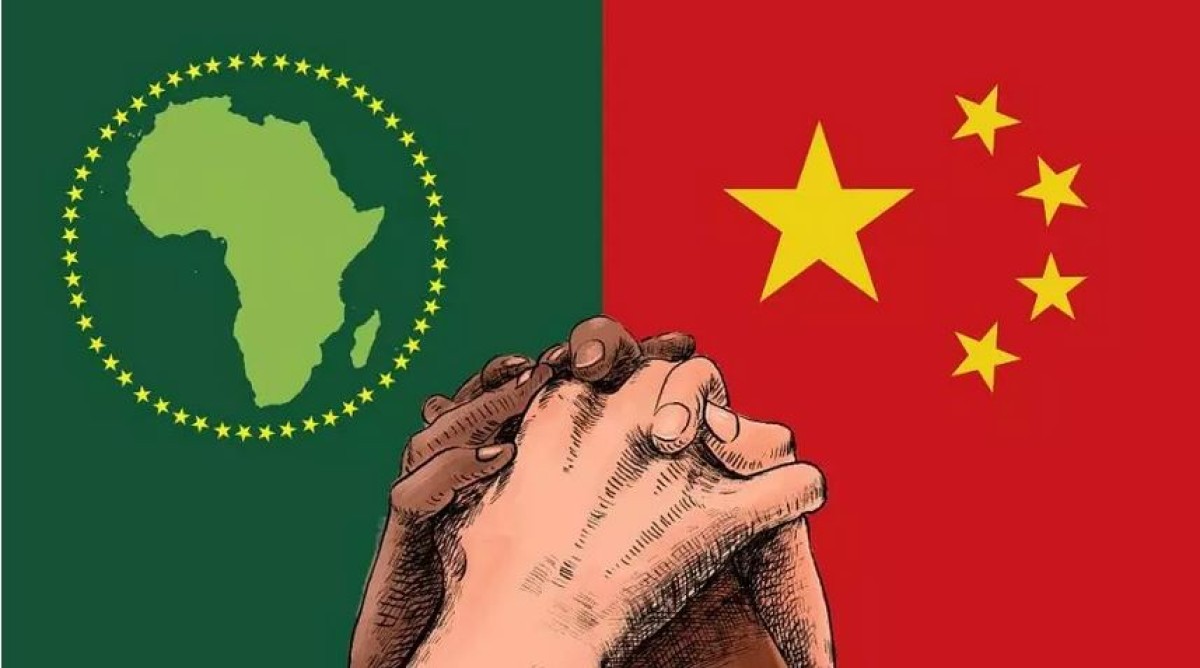 2204
2204
China’s Commitment to Africa: A Vision of Shared Growth and Stability
China’s Commitment to Africa: A Vision of Shared Growth and Stability
In recent days, Beijing served as the host for the annual China-Africa Cooperation Forum, a key platform that underscores China's strategic engagement with the African continent
By: A. Yeganeh
In recent days, Beijing served as the host for the annual China-Africa Cooperation Forum, a key platform that underscores China's strategic engagement with the African continent. President Xi Jinping, in his inaugural address, highlighted the profound significance of China’s relations with Africa, emphasizing the necessity of strengthening the continent’s infrastructure and reiterating China's unwavering commitment to fostering deep, multidimensional ties. Xi also positioned Africa as a future cornerstone of the global economy, with its vast natural resources poised to play a pivotal role in shaping economic development. Attended by 50 African leaders, this forum is emblematic of China's growing presence on the continent—a presence that continues to be marked by both economic partnership and geopolitical foresight.
China’s engagement with Africa is not only about the present, but the future—a future where Africa’s potential is harnessed for global progress. With the continent’s rich reserves of strategic minerals, particularly cobalt and copper, Beijing has recognized Africa's unique position as a resource hub critical for the advancement of modern industries. These resources, indispensable for sectors ranging from military technology to green energy, have drawn significant interest from global powers. The United States, spearheading the Western front, has also made strategic investments in Africa’s railways and mining sectors. However, unlike Washington’s more extractive approach, China’s presence in Africa is marked by a pacifist, cooperative nature, fostering development through infrastructure, education, and economic initiatives.
The competition between China and the West in Africa, particularly over strategic minerals, reveals the continent’s role as a battleground for influence between the world’s largest economies. As African resources become ever more crucial for advanced industries, the race for access to these supplies has intensified. However, China’s approach stands apart from that of the United States, not only for its economic scale but for its diplomatic finesse. Beijing has consistently focused on long-term, mutually beneficial partnerships rather than transactional relationships—a distinction that resonates deeply with African leaders wary of neo-colonialism.
Africa’s geopolitical landscape has also been marked by significant political instability, with numerous coups and regime changes rippling through the continent. The Western powers, particularly the United States, view this instability with concern, recognizing that Africa’s political realignments could facilitate a deeper presence for China, Russia, and even Iran on the continent. The creation of military bases by these Eastern powers, particularly Russia, adds another dimension to this struggle for influence, positioning the continent not merely as an economic resource but also as a critical geopolitical chessboard. By expanding its military footprint in Africa, the Eastern bloc, led by China and Russia, could pose significant challenges to Western interests, particularly in times of global conflict.
However, China's role in Africa extends far beyond military and economic interests. Beijing’s leadership has strategically aligned itself with the continent’s enduring anti-colonial sentiments, a powerful force that has long shaped African political consciousness. For centuries, African nations were exploited and marginalized by Western powers, their resources drained for imperialistic purposes. Today, the Eastern bloc—led by China—taps into this history of exploitation, offering a vision of partnership that is free from the historical baggage of Western colonialism. The presence of over 50 African leaders at the Beijing summit speaks volumes about the continent's favorable perception of China, a perception that offers the Eastern bloc a unique foothold.
In the broader geopolitical context, China has assumed the responsibility of spearheading infrastructure development across the African continent, while Russia focuses on regime change and military strategies aimed at disrupting Western influence. Meanwhile, other Eastern bloc nations are tasked with arming anti-Western military groups in Africa, further complicating the region’s political landscape. Together, these efforts are part of a meticulously coordinated strategy to redefine Africa’s alliances, challenging the established Western order.
The West, particularly the United States, views this evolving dynamic with trepidation. To counter China’s rising influence, Western powers have enlisted their own African proxies to safeguard their strategic interests in the region. Yet, as the influence of the Eastern bloc continues to grow, it is likely that Africa will become a more contested space, with the potential for further political unrest, coups, and military conflicts.
In conclusion, Africa’s future will be shaped by the strategic maneuvers of global powers. As China continues to build bridges—both literal and metaphorical—across the continent, its influence will reshape the global economic and political landscape. Beijing’s commitment to infrastructure, economic development, and respect for Africa’s anti-colonial legacy positions it as a formidable partner for African nations. In this emerging world order, China’s relationship with Africa offers a compelling vision of cooperation, one that is poised to challenge the dominance of Western powers and redefine the continent’s role on the global stage.
 2204
2204
Comment
Post a comment for this article